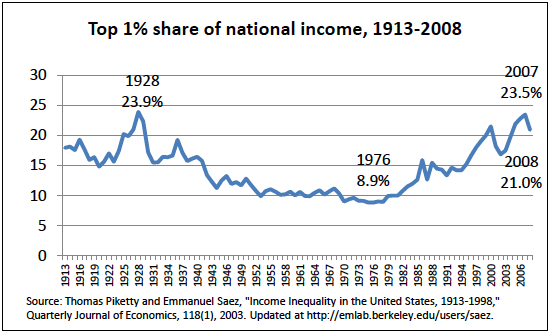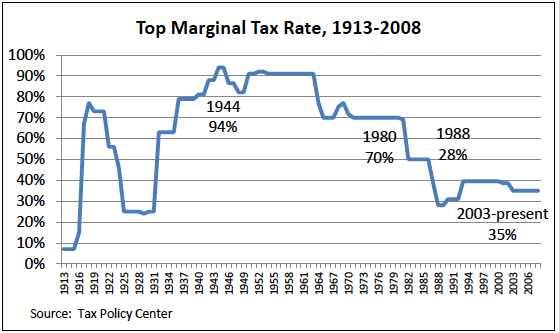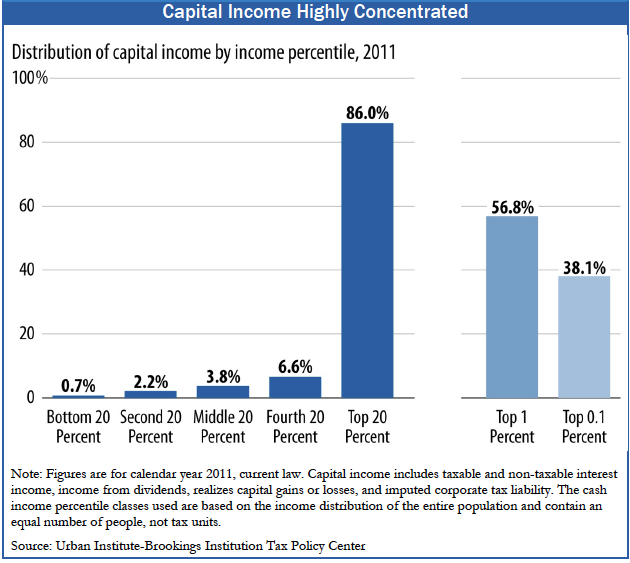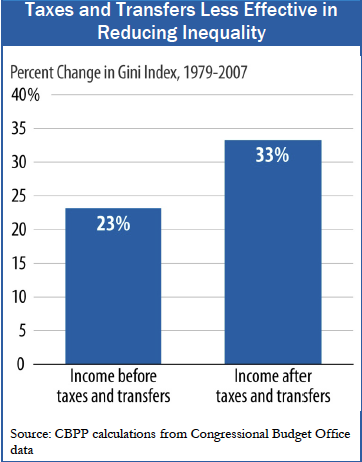In another sign that Democrats have embraced income inequality as a cause célèbre, the Senate Budget Committee held a hearing on the subject today. The committee’s ranking Republican, Jeff Sessions of Alabama, managed to look concerned during two hours of testimony about the kneecapping of the Middle Class—not that it should have been all that difficult. Here are some of the hearing’s most striking charts:
Mother Jones readers have seen this one: The Philippe Dauman chart:
The 1 percent hasn’t controlled such a large share of the economy since the eve of the Great Depression:

But as the rich have earned a larger share, they’ve paid a smaller and smaller share in taxes:

A major source of inequality in the tax code comes from how it treats investment income. Just ask Mitt Romney, who paid 13.9 percent of his income in taxes in 2010. Most of his earnings came from capital gains, which only get taxed at 15 percent. Proponents of the loophole argue that it helps spur investment, but it also disproportionately helps the rich:
 Though America’s wealthy are supposed to pay a higher tax rate than the poor (what’s known as a “progressive tax code”), they now benefit from so many loopholes that the tax code has, in practice, become increasingly regressive (the Gini Index is a common measure of income inequality):
Though America’s wealthy are supposed to pay a higher tax rate than the poor (what’s known as a “progressive tax code”), they now benefit from so many loopholes that the tax code has, in practice, become increasingly regressive (the Gini Index is a common measure of income inequality):
















